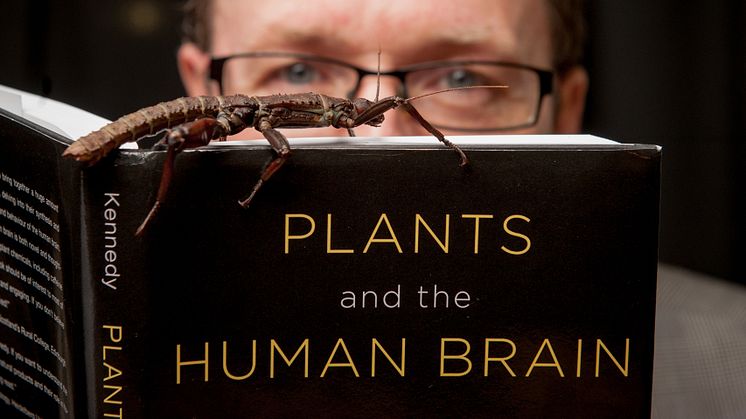
Press release -
COMMENT: Take a daily aspirin or eat more fruit and vegetables?
The combined British broadcast and print media rejoiced in the news (reported in Annals of Oncology) that an international group of academics have shown that consuming low doses of aspirin from middle age onwards can reduce the risk of dying of cancer, heart attack, or stroke.
This is certainly not the first time that aspirin as a prophylactic wonder-drug has taken centre stage, but, a curious thing, amongst all of the coverage there has been no consideration of what aspirin is, or indeed why it might have these beneficial effects.
Aspirin, or acetylsalicylic acid to give it its more formal name, is the acetylated form of salicylic acid — the acetylation simply serves to help the compound bypass the stomach before it is absorbed in the small intestine.
Salicylic acid itself is an intriguing molecule. It’s found across all plants where it acts as a hormone, making a major contribution to the hormonal cross-talk that dictates the plant’s response to environmental stresses and attacks by other organisms. The plant’s primary defensive hormones are the ‘jasmonates’, and one key role of salicylic acid is to try to reduce the cellular effects of the jasmonate hormones.
In effect, salicylic acid tries to switch the plant’s response from one suited to abiotic stressors and defence against herbivores toward a longer-term “immune” response suited to resisting biotrophic and viral pathogens.
The fascinating thing is that the jasmonate system is a genetically-conserved ortholog of the mammalian prostaglandin system. Both were inherited from a distant common unicellular ancestor of plants and humans. Jasmonates and prostaglandins are therefore closely related structurally and they trigger similar cellular responses in their respective taxa, with the exception that the mammalian response includes multiple inflammatory cascades whereas the plant manufactures a palette of chemicals that help it deal with the stressors.
One key activity of salicylic acid when consumed by humans is the antagonism of the prostaglandin system in the same manner that it would have targeted the plant’s jasmonate system. It’s this property which gives aspirin the celebrated anti-inflammatory and blood thinning effects that contribute to its cardiovascular benefits.
Similarly, salicylic acid’s potential anti-cancer effects are liable to be predicated on it inducing programmed cell death in tumour cells in a process that closely resembles the ‘hypersensitive response’ that it coordinates in plants in response to microbial pathogens.
Whilst this ‘cross-kingdom’ transfer of salicylic acid’s cellular effects is fascinating, the more important point is that salicylic acid, as a ubiquitous plant chemical, is also a natural part of our diet.
Research shows that humans exhibit circulating levels of salicylic acid that correlate with their consumption of plant derived foods, and that the highest concentrations achieved via this natural route can be greater than the concentrations seen in individuals that regularly take aspirin.
This is nothing new; we and our prostaglandin system have evolved in the continuous presence of salicylic acid, probably at much greater concentrations than seen in modern man.
Taken in this context the exhortation of medical practitioners for us to take aspirin looks like yet another case of the unnecessary medicalization (as also seen recently with regards sterols) of an issue that can be tackled simply by modifying the poor diets now enjoyed by the populations of developed nations.
Surely it would be much better if we simply shifted our consumption of fruit and vegetables towards the levels enjoyed by our distant ancestors and took advantage of dietary salicylic acid’s natural properties?
David Kennedy is Professor of Biological Psychology and Director of the Brain, Performance and Nutrition Research Centre at Northumbria University, Newcastle. He has published a wide range of papers describing the effects of nutritional interventions on psychological functioning. His book Plants and the Human Brain describes how, in terms of mechanisms, plant chemicals affect the functioning of the human brain. More importantly, for the first time, the book tries to answer the question of ‘why?’ plant chemicals have these multifarious effects on the brain.
Topics
Categories
Northumbria is a research-rich, business-focussed, professional university with a global reputation for academic excellence. To find out more about our courses go towww.northumbria.ac.uk
If you have a media enquiry please contact our Media and Communications team at media.communications@northumbria.ac.uk or call 0191 227 4571.






